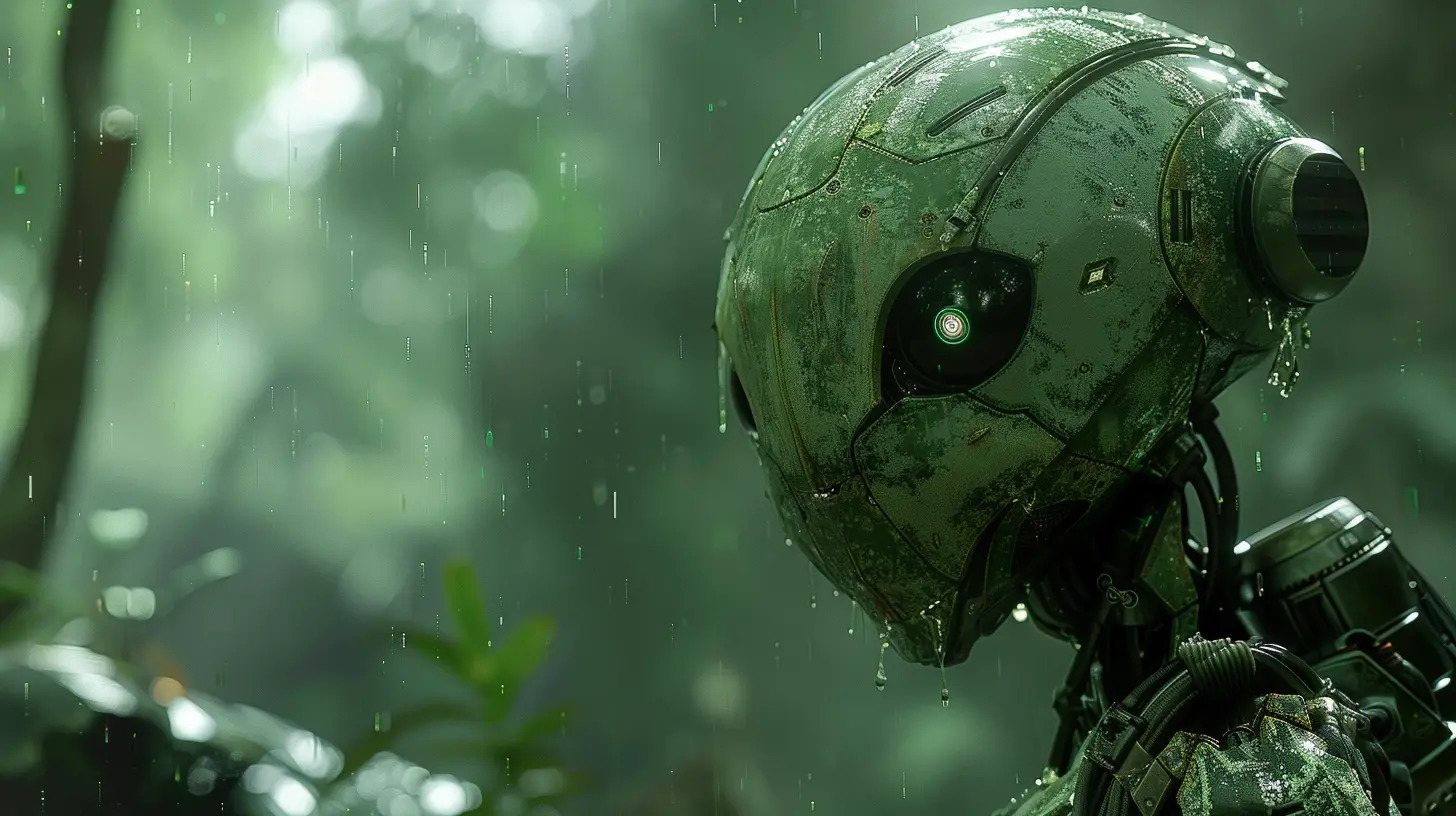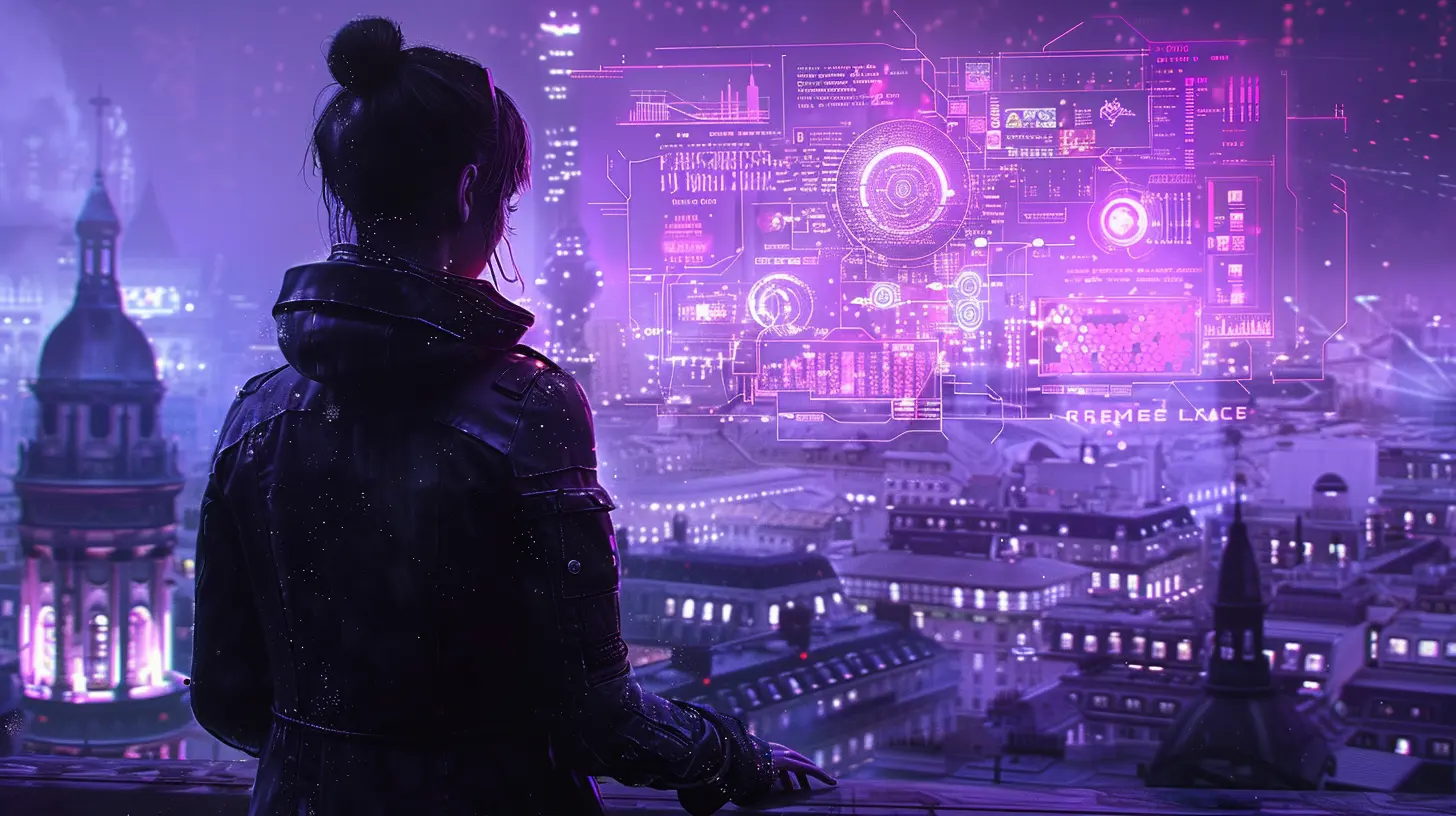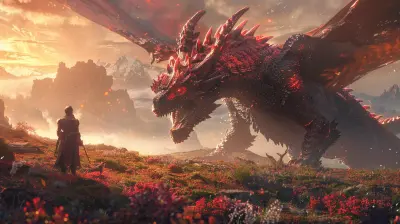The Role of AI in Game Design: Creating Smarter and More Dynamic NPCs
15 June 2025
Have you ever been playing a game, strolling through a virtual world, and suddenly encountered an NPC (non-player character) that made you do a double take? Maybe it responded to your actions in a way that felt almost... human? That’s not by accident—that’s AI stepping up its game (pun intended!) in the world of game design.
Artificial intelligence has come a long way, and it’s transforming how NPCs behave, interact, and contribute to a player's experience. No longer are NPCs just static, one-line dialogue spewing background fillers. These days, AI is making NPCs smarter, more dynamic, and, quite frankly, a heck of a lot more interesting. Buckle up, because we're diving into how AI shapes the future of NPCs in games and why this evolution makes gaming worlds feel so alive.
What Exactly Are NPCs?
Before we jump into the nitty-gritty of AI, let’s backtrack a bit. NPCs are, in simple terms, characters in a game that are controlled by the game itself, not by players. Think of the shopkeeper in The Legend of Zelda: Breath of the Wild, the villagers in Animal Crossing, or even the enemy soldiers in FPS games like Call of Duty.In the past, NPCs were often pretty predictable. They followed scripts or routines, and while they did their job, there was always something mechanical about their behavior. Like, remember when NPCs in older games would walk into walls and just keep walking? Yeah, not exactly "smart."
That’s where AI steps in, making these characters less like cardboard cutouts and more like believable inhabitants of their game worlds. 
How AI is Revolutionizing NPC Behavior
So, what does AI actually do for NPCs? Glad you asked! AI is like the puppet master behind the scenes, programming NPCs to act and react in ways that elevate the immersiveness of the game. Here are some key areas where AI is flexing its muscles:1. Enhanced Decision-Making
AI allows NPCs to make decisions based on context. Say you’re sneaking around in a stealth game. Older NPCs might have had a basic “if player is near, attack” behavior. But with AI? Now, they might notice footprints, investigate sounds, or even set traps.For example, in The Last of Us Part II, enemy NPCs don’t just charge at you mindlessly; they try to flank you or regroup if they’re outnumbered. Some even call out to allies—by name! It’s like going from playing chess with a toddler to squaring off against a grandmaster.
2. Dynamic Interactions
Remember those awkward static NPCs who’d just repeat the same line over and over? AI is changing this by creating NPCs that respond dynamically to your actions.Take Red Dead Redemption 2, for instance. The NPCs in that game don’t just recognize your presence; they remember you. Help someone out, and they might thank you later. Pick a fight? They’ll hold a grudge. It’s like small-town gossip but in a digital Wild West.
3. Emergent Behaviors
Emergent behaviors are when NPCs act in ways that weren’t explicitly programmed but arise from their AI systems. It’s kind of like when you teach a dog a few tricks, and it combines them to do something totally new.In Middle-Earth: Shadow of Mordor’s Nemesis System, enemy NPCs remember encounters with the player. Get defeated by an Orc, and they might come back stronger and taunt you. It’s like they’re learning and evolving—not in a creepy Skynet way, but in a way that makes gameplay feel personal and unique. 
Making NPCs Feel "Human"
Let’s be real: no one expects NPCs to be indistinguishable from real people (though we might get there someday). But AI can make them lifelike enough that we forget they’re just lines of code. How? By focusing on emotion, adaptability, and personality.1. Emotional Intelligence
AI gives NPCs the ability to show emotions—whether through dialogue, facial expressions, or even body language. Games like Detroit: Become Human excel in this department. The characters react based on the choices you make, and their emotions feel raw and believable. It’s not just about what they do; it’s about how they feel.2. Adapting to Gameplay Styles
Picture this: you’re playing an RPG, and you’re a total button-mashing whirlwind of chaos. In a regular game, NPCs don’t adjust. But with AI? They can adapt to your style. Maybe enemies become more defensive if you’re overly aggressive, or allies suggest strategies based on how you’ve been playing.AI essentially gives NPCs the ability to "learn" from you, making each playthrough feel tailored to your actions.
3. Distinct Personalities
Gone are the days of cookie-cutter NPCs who all act the same. AI can imbue individual NPCs with unique traits. Maybe one shopkeeper is grumpy and haggles, while another is cheerful and cuts you a deal. It adds flavor and depth to the world and makes the game feel less like a formula.
The Challenges of Using AI in NPC Design
Of course, nothing in life (or game design) is ever as simple as snapping your fingers. Using AI to create smarter NPCs comes with its own set of challenges.1. Performance Limitations
All that fancy AI programming takes up resources. If game developers aren’t careful, smarter NPCs could bog down performance, especially on older hardware. Nobody wants their game to lag just because the baker NPC is deciding which loaf of bread to bake today.2. Balancing Realism and Fun
NPCs that are too smart might actually end up frustrating players. Imagine an enemy AI so adaptive that it feels impossible to beat. Developers have to find the sweet spot between challenging and annoying.3. Uncanny Valley Risks
When NPCs start getting too realistic, we enter the “uncanny valley.” That’s the weird, creepy feeling you get when something looks almost human but not quite. Developers need to ensure NPCs stay engaging without crossing into unsettling territory.The Future of AI and NPCs
So, where do we go from here? Well, as AI tech advances, NPCs are only going to get smarter, more dynamic, and more integrated into game worlds. Imagine NPCs that can truly hold conversations, form relationships with players, and even have their own goals and motivations.Some developers are even experimenting with AI-driven procedural storytelling. This means the game’s narrative could shift and evolve based on how NPCs interact with players. It’s like being the protagonist in a story that’s being written in real-time.
And with breakthroughs in machine learning and neural networks, we might even see NPCs "training" themselves. It’s like giving them a brain and letting them figure things out on their own. Cool, right?
Final Thoughts
AI is revolutionizing NPC design in ways we couldn’t have imagined a decade ago. From smarter decision-making to more human-like behavior, NPCs are becoming an integral part of the immersive experiences we crave as gamers.Sure, there are challenges, but the possibilities are endless. Whether you’re chatting with a quirky villager, outsmarting a devious enemy, or forming deep emotional connections with a story-driven character, AI is pushing the boundaries of what NPCs can do.
So next time you’re playing your favorite game and you notice an NPC doing something clever, give a little nod to the behind-the-scenes magic of AI. Trust me, it deserves the credit.
all images in this post were generated using AI tools
Category:
Game DesignAuthor:

Francesca West
Discussion
rate this article
2 comments
Nicholas McAdoo
Great article! I appreciate how you highlighted the innovative ways AI is enhancing NPC design. It's fascinating to see how smarter, more dynamic characters can elevate the overall gaming experience. Looking forward to the future of AI in games!
June 23, 2025 at 2:38 AM

Francesca West
Thank you for your thoughtful comment! I'm glad you enjoyed the article and share my excitement about the future of AI in gaming.
Mitchell Patel
Great insights! AI's impact on NPC design truly enhances player immersion and engagement. Excited to see how developers continue to innovate with smart, dynamic characters.
June 16, 2025 at 3:17 AM

Francesca West
Thank you! I'm glad you found the insights valuable. The future of NPC design with AI is indeed exciting and full of potential!


